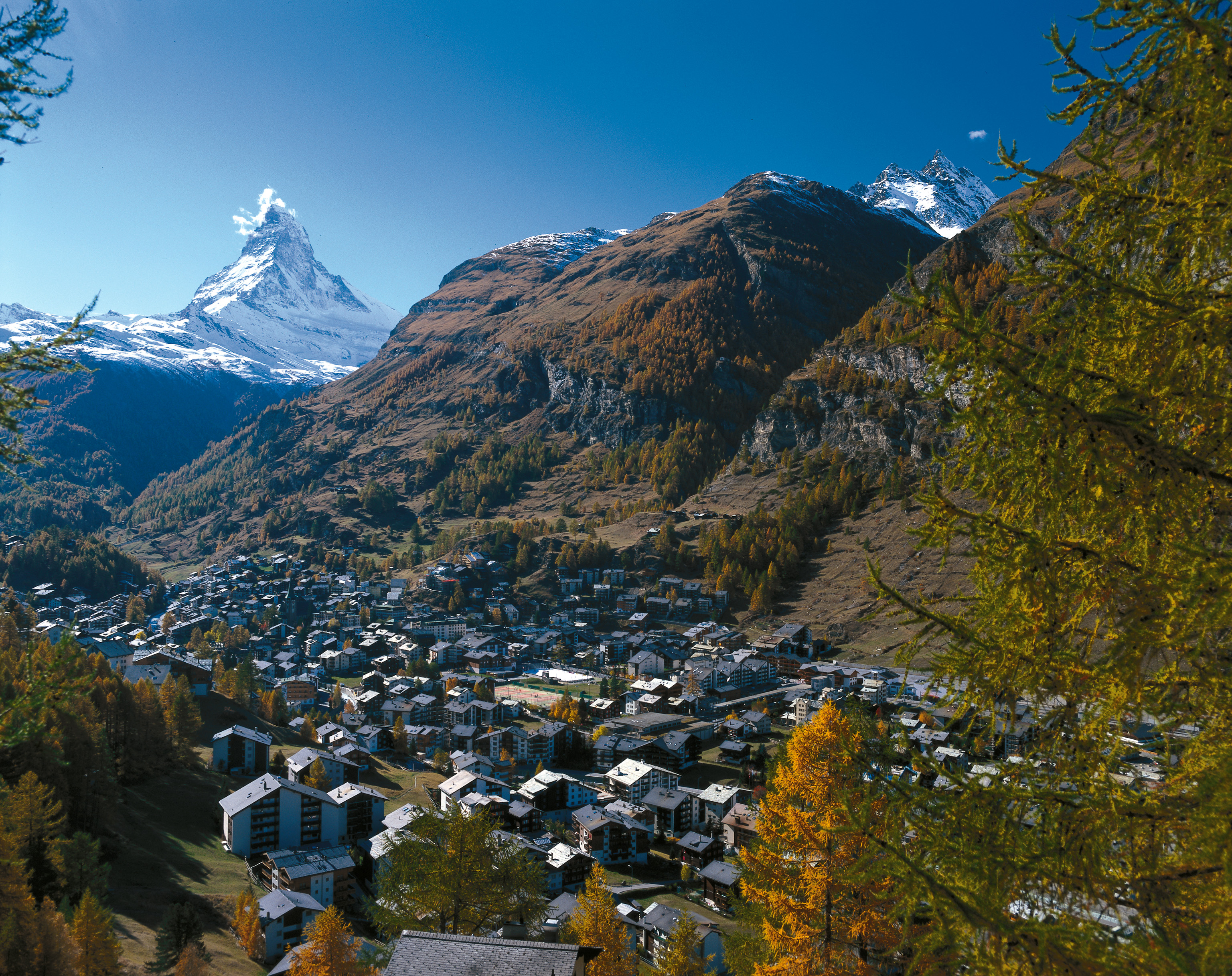
Foreign hotel staff to face tougher competition

What impact will the end of the quota system for employees from eight eastern European countries have on the Swiss hotel and catering sector?
swissinfo.ch took a look around in the famous mountain resort of Zermatt at the foot of the Matterhorn ahead of May 1.
Walking through the streets lined with shops selling jewelry, watches and souvenirs of all sorts, the numerous American, Asian and European tourists are a common sight.
They are as much part of the village scenery as the electronic cars and skiers who return from a day on the slopes 1,500m above Zermatt. Among the passers-by are also groups of lively young people speaking Portuguese. Can they all afford a holiday in the fashionable resort coming from a country with a struggling economy?
In fact, they are the sons and daughters of parents who work here as chambermaids, kitchen hands and cleaning ladies. Many of them have been employed as unskilled workers in Zermatt for years and so brought their families with them to Switzerland.
Over the peak tourist season every other resident of Zermatt has a foreign passport – not even counting the tourists.
The Portuguese community in the mountain resort accounts for about 80 per cent of all foreigners. How will this going to change when quotas and other restrictions are lifted for employees from a further eight European Union countries – Poland, Hungary, Slovakia, the Czech Republic, Slovenia as well as the three Baltic Republics, Estonia, Latvia and Lithuania?
Lower salaries
“Most of my colleagues from Germany work as waiters and waitresses or in hotel and restaurant kitchens. Most of them have professional qualifications,” says Nathalie – a 26-year old Swiss – who works in bar of a renowned Zermatt hotel.
Many foreign personnel are doing jobs that Swiss employees would not want to do, she said.
“Who wants to spend the day washing dishes, cleaning hotel rooms for ten hours or polishing the silverware all day long?,” said Nathalie.
A clause in the bilateral labour accord between Switzerland the EU stipulates that people from those eight countries can only be employed if a job vacancy cannot be filled by a Swiss. As of Sunday, this restriction is abolished.
Mauro Moretto in charge of the restaurant sector at the Unia trade union, believes the abolishment of quotas and restrictions means no major change.
Competition
“But we have to keep an eye on possible attempts at undercutting salary levels. We will increase our control,” he said.
Moretto added that there was no great change when similar labour accords with other EU member states took full effect.
“The foreigners earn less than the Swiss,” said Nathalie from the hotel bar. “But they make more than at home.”
Renate, a 24-year-old German who works as a chef de rang, confirms that as a rule, Swiss employees have higher salaries.
“I have a regular contract which is in line with the collective work agreements of the hostelry trade. But in my opinion employees should negotiate before they sign on. Once you agree a certain salary you must not complain,” she said.
Make more
Zermatt authorities expect an increasing number of enquiries from eastern Europeans as of next week.
“Many of these people have a good knowledge of the German language. As a result the number of German and Austrian workers is likely to decrease,” authorities say.
For her part, Renate seems unfazed by the potential changes as Germans are often better qualified, she said.
“I think it will take a little while before the people from the EU-8 countries become serious competitors,” she said.
But changes could come sooner than expected as the example of 26-year-Oksana, a Lithuanian waitress at a Zermatt hotel, shows.
She studied French and English, speaks Italian and has a good knowledge of German. Oksana waited for a long time to receive a work permit and it was not easy to get a job as an assistant waitress in a hotel.
Probably the only Lithuanian in Zermatt at the moment, Oksana is convinced that more of her fellow citizens will come and try their luck in Switzerland now, given what she described are dismal job prospects at home.
Oksana plans to stay in Switzerland but would like to find employment outside the hotel and restaurant sector.
“I would prefer a job where I can make better use of my languages and earn more,” she said.
The labour accord between Switzerland and the EU entered into force on June 1, 2002. Initially it applied to 15 “old” EU states, plus Malta and Cyprus, which were subject to quota limits until June 1, 2007.
Citizens from Liechtenstein, Iceland and Norway benefit from a similar agreement.
In 2006, the agreement was extended to include eight countries which joined the EU in 2004 – Czech Republic, Hungary, Slovenia, Poland, Slovakia, Estonia, Lithuania, Latvia – which were subject to immigration quotas until April 30, 2011.
Bulgaria and Romania, who joined the EU in 2007, were admitted to the agreement in 2009, with the possibility of quotas applicable until 2016.
The labour accord is one of more than 20 bilateral agreements between non-EU member Switzerland and Brussels.
Germany and Austria are also preparing to open their borders to workers from the EU 8 countries on May 1.
The two EU countries, fearful of an influx of immigrants following the countries’ adhesion to the EU in 2004, delayed for seven years opening their markets to workers from these countries.
(Adapted from German by Urs Geiser)

In compliance with the JTI standards
More: SWI swissinfo.ch certified by the Journalism Trust Initiative




























You can find an overview of ongoing debates with our journalists here . Please join us!
If you want to start a conversation about a topic raised in this article or want to report factual errors, email us at english@swissinfo.ch.